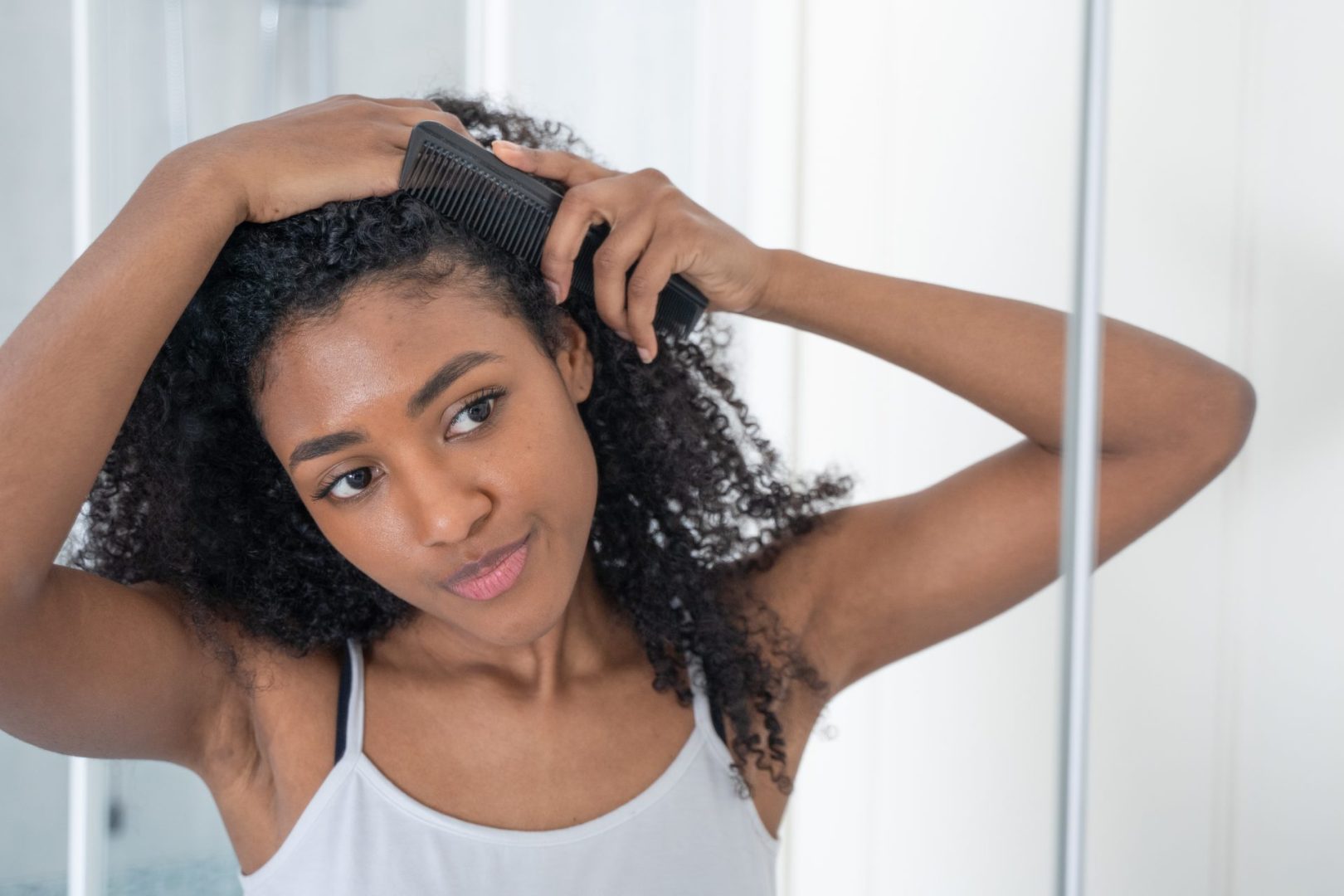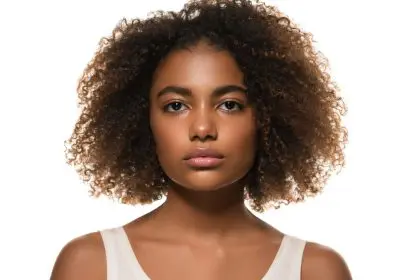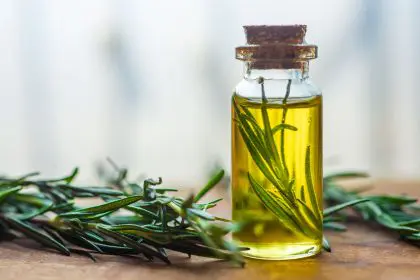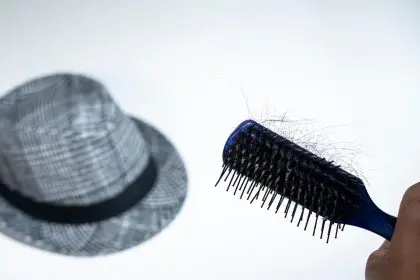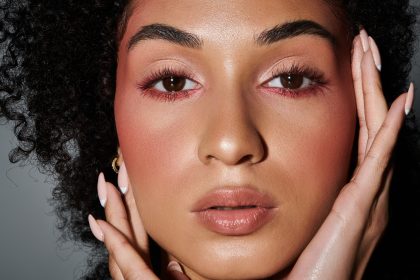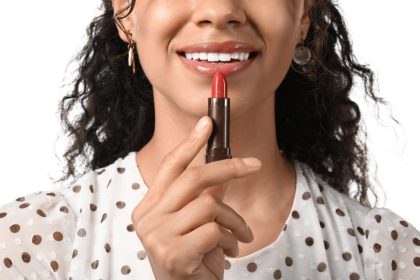Hair loss affects millions of people worldwide, creating emotional distress and diminishing confidence in ways that extend far beyond physical appearance. While genetics play a significant role in hair health, nutrition represents a controllable factor that can dramatically influence hair growth, thickness, and retention throughout life.
The relationship between diet and hair health operates through complex biochemical pathways that affect everything from follicle strength to growth cycle duration. Understanding which foods provide the specific nutrients hair follicles need creates opportunities to address thinning hair through natural dietary approaches that work from the inside out.
The science behind nutrition and hair growth
Hair follicles rank among the most metabolically active structures in the human body, requiring constant nutrient supply to maintain healthy growth cycles. Each strand of hair consists primarily of a protein called keratin, which requires adequate amino acid availability for proper formation. When nutritional deficiencies develop, hair follicles prioritize survival over growth, leading to thinning, breakage, and eventual loss.
Blood circulation to the scalp delivers essential nutrients to hair follicles, making cardiovascular health crucial for optimal hair growth. Foods that improve circulation and reduce inflammation create better conditions for nutrient delivery to follicles. This connection explains why overall health improvements often coincide with better hair quality and growth.
Hormonal balance also influences hair health significantly, with certain nutrients playing key roles in hormone production and regulation. Dietary choices can either support or disrupt these delicate hormonal relationships, affecting hair growth patterns and follicle sensitivity to hair loss triggers.
Protein powerhouses for stronger strands
- Salmon and fatty fish provide high-quality protein along with omega-3 fatty acids that reduce scalp inflammation and improve hair shine. The protein content supports keratin production while healthy fats nourish follicles from within. Regular consumption of fatty fish has been associated with increased hair density and reduced hair loss rates.
- Eggs contain complete proteins with all essential amino acids needed for hair structure. The biotin content in eggs specifically supports hair growth, while the sulfur compounds strengthen hair bonds. Egg yolks also provide vitamin D, which plays a role in hair follicle cycling.
- Greek yogurt offers concentrated protein along with probiotics that support nutrient absorption. The protein helps build hair structure while probiotics improve gut health, enhancing the body’s ability to extract hair-supporting nutrients from food. The calcium content also contributes to hair follicle function.
- Lean poultry provides easily absorbed protein that supplies amino acids directly to hair follicles. Chicken and turkey contain high levels of iron, which prevents hair loss associated with iron deficiency. The B-vitamin content supports cellular energy production needed for active hair growth.
Iron-rich foods that prevent hair loss
- Spinach and dark leafy greens contain iron, folate, and vitamin C that work together to support hair health. Iron deficiency represents one of the most common nutritional causes of hair loss, particularly in women. The vitamin C enhances iron absorption while folate supports cellular division in hair follicles.
- Lentils and legumes provide plant-based iron along with protein and zinc. These nutrients work synergistically to support hair growth and prevent deficiency-related hair loss. The fiber content also supports overall health, creating better conditions for nutrient absorption and utilization.
- Pumpkin seeds contain iron, zinc, and healthy fats that nourish hair follicles. The zinc content specifically helps regulate hormone levels that affect hair growth, while the iron prevents deficiency-related thinning. These seeds also provide magnesium, which supports cellular energy production.
Vitamin-rich foods for follicle health
- Sweet potatoes contain beta-carotene, which the body converts to vitamin A for healthy sebum production. Adequate sebum keeps hair moisturized and protected, preventing breakage and dryness that can lead to hair loss. The fiber content also supports overall health and nutrient absorption.
- Avocados provide vitamin E, healthy fats, and biotin that directly support hair health. Vitamin E improves scalp circulation while healthy fats reduce inflammation. The biotin content specifically supports hair growth and strength, making avocados particularly beneficial for those experiencing thinning hair.
- Citrus fruits supply vitamin C, which supports collagen production needed for healthy hair structure. Vitamin C also enhances iron absorption from other foods, addressing one of the primary nutritional causes of hair loss. The antioxidants protect hair follicles from damage that can impair growth.
Mineral-dense options for optimal growth
- Oysters and shellfish contain extremely high levels of zinc, which plays crucial roles in hair growth and repair. Zinc deficiency can cause significant hair loss, making these foods particularly valuable for those experiencing thinning. The protein content also supports keratin production.
- Brazil nuts provide selenium, which supports thyroid function and antioxidant activity that protects hair follicles. Just two Brazil nuts daily can meet selenium requirements, making them an efficient addition to hair-healthy eating patterns. The healthy fats also support overall scalp health.
- Sunflower seeds contain vitamin E, zinc, and healthy fats that nourish hair follicles and improve scalp circulation. The combination of nutrients supports hair growth while protecting against oxidative damage that can impair follicle function. These seeds make convenient snacks that easily fit into daily routines.
Complex carbohydrates for sustained energy
- Quinoa provides complete protein along with complex carbohydrates that supply steady energy to hair follicles. The iron and zinc content support hair growth while the protein builds hair structure. As a gluten-free grain, quinoa works well for those with sensitivities that might affect nutrient absorption.
- Oats contain beta-glucan fiber that supports healthy cholesterol levels and improved circulation to the scalp. The iron, zinc, and B-vitamins directly support hair growth while the complex carbohydrates provide sustained energy for metabolically active follicles.
Antioxidant-rich foods for follicle protection
- Berries provide vitamin C and anthocyanins that protect hair follicles from oxidative damage. The antioxidants help maintain healthy blood flow to the scalp while vitamin C supports collagen production needed for strong hair structure. The natural sugars provide quick energy for cellular processes.
- Green tea contains antioxidants that may help block DHT, a hormone associated with hair loss. Regular green tea consumption has been linked to improved hair growth and reduced hair loss in some studies. The mild caffeine content may also improve scalp circulation.
Healthy fats for scalp nourishment
- Walnuts provide omega-3 fatty acids, protein, and vitamin E that support hair health from multiple angles. The healthy fats reduce scalp inflammation while protein builds hair structure. The zinc content helps regulate hormones that affect hair growth patterns.
- Olive oil contains monounsaturated fats and vitamin E that can be consumed or applied topically for hair benefits. When consumed regularly, olive oil supports overall health and reduces inflammation that can impair hair growth. The antioxidants protect against cellular damage.
Creating sustainable eating patterns
Incorporating these hair-healthy foods into daily meals requires planning but doesn’t need to be complicated. Focus on including protein sources at each meal, adding colorful fruits and vegetables for vitamins and antioxidants, and incorporating healthy fats throughout the day. Consistency matters more than perfection when it comes to nutritional support for hair health.
Meal timing also influences how well the body uses nutrients for hair growth. Spreading protein intake throughout the day ensures steady amino acid availability for keratin production. Combining iron-rich foods with vitamin C sources maximizes absorption of this crucial hair-growth mineral.
The cumulative effects of consistent healthy eating create the best environment for optimal hair growth and retention. While individual foods provide specific benefits, the overall dietary pattern determines long-term hair health outcomes. These nutritional approaches work best when combined with other healthy lifestyle practices that support overall wellness and hair growth.

